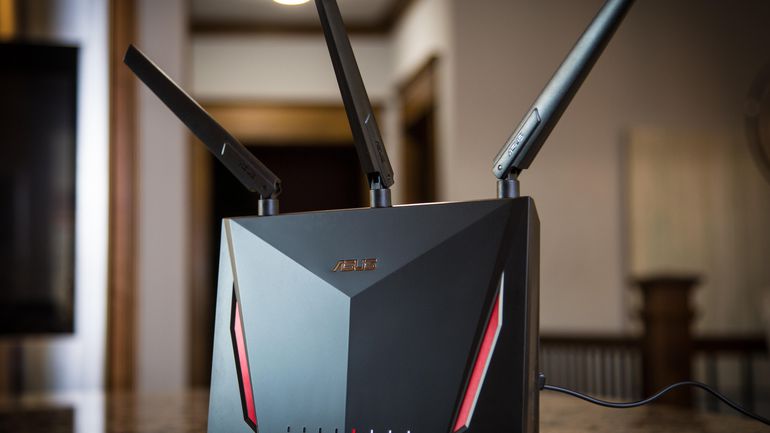The wide publication of attacks on IoT devices and compromised data is enough to make anyone leery of IoT devices in general. Recent attacks like the Mirai Botnet corralled thousands of routers and security cameras to deliver serious damage with DDoS attacks. Now, a more sinister Botnet is reportedly being built from a portion of Mirai’s code. However, what isn’t usually known is that most of these attacks are only successful due to the absence of basic security measures.
For instance, many people don’t change the default username and password on their devices because they don’t realize they can be compromised remotely. Although people know their devices are designed to connect to the internet, the potential for being remotely hacked doesn’t occur to them. They just don’t have the experience to understand what makes their devices vulnerable.
IMAGE: ASUS
Small Business Owners Need An IT Security Specialist On Their Team
If you’re a small business owner setting up a wireless network for your team, you’re probably not an IT security specialist. You’ll probably set up the network the same way you set up your home network, and unless there’s a problem connecting, the network will be left alone. When there is a problem that can’t be fixed by rebooting the router, you’ll call a local tech to get you back online.
This seems to make more financial sense than keeping a networking specialist on staff. However, if connectivity issues are the only way you know there’s a problem, your network – and all connected devices – could become irreparably compromised before you know anything about it. That scenario will cost you a significant amount of cash in damage control.
If hackers gain access to your customer’s data such as names, addresses, and credit card numbers because you failed to keep that data secure, you could be sued with judgments you can’t afford to pay. If that happens, you may need to file for bankruptcy.
Hiring An In-House IT Security Team Is The Answer
It costs money to keep anyone on staff, yet security is always worth it. Even if your in-house security team consists of one person, that’s better than none. Think of hiring an in-house IT security specialist as an investment rather than an expense. Networks are complex enough on their own. Network security is another beast. Network security isn’t something you can research and figure out on your own.
Having an IT security specialist gives you the following advantages over winging it:
- Having your own security specialist puts someone with deep security knowledge and experience on your team. It’s their job to stay on top of the latest exploits, and they’ll understand the implications as they directly relate to your specific network configuration. They’ll keep your network security tight with frequent analysis as well as required updates to firmware and software.
- They’ll set your network up correctly from the start. They’ll turn off remote firmware updates to protect you from the alleged CIA “Cherry Blossom” exploit revealed by WikiLeaks in 2017. They’ll install the proper firewalls, and even a VPN if you choose. They may even install a long-range router with existing VPN protection and TrendMicro vulnerability detection like the Asus RT-C88U.
If security expert John McAfee never connects to public Wi-Fi, and instead, uses the LTE on his phone, that says a lot. He also says it’s not just the CIA you need to worry about. “All of these routers, that’s virtually all routers in use in American homes, are accessible to hackers,” McAfee says. “They can take over control, monitor all of the traffic and can download malware onto any device that is connected to that router.” - They’ll be able to implement fixes immediately because they’ll know how your network is set up. Sometimes network techs need to investigate your setup before they can fix the problem. When they charge by the hour, as most do, you’re paying them to learn about your network as well as fix it.
- If your network isn’t setup correctly from the start, sometimes the solution to fix it will mean completely recreating your network from the ground up. Some security measures aren’t possible to implement with inferior equipment and DIY setups.
Consider Network Security Part Of Your Payroll
Network security is just as important as marketing, accounting, and sales. Without it, you leave your business vulnerable to attacks that can compromise your business and ultimately cause harm to your customers.
By shifting your perception of network security from something you can “set and forget” to an integrated, ongoing part of your business, you’ll be avoiding preventable disasters.
If you are interested in even more technology-related articles and information from us here at Bit Rebels then we have a lot to choose from.


COMMENTS